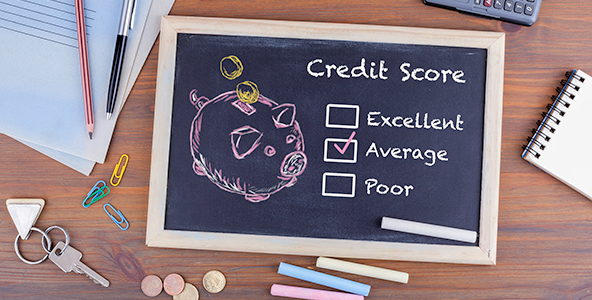Bank Holiday opening hours on Monday 6th May are 9 am – 1pm
It can be harder for people with criminal convictions to secure a mortgage. This is because many lenders see convicted criminals as high risk borrowers. But worry not — many people in the UK with criminal convictions have gone on to get mortgages. In this guide we explore the options that are available to those who have been convicted of a crime and want to get a mortgage. We'll also discuss how you can improve your chances of being approved for a mortgage, even with a criminal record.
The Topics Covered in this Article Are Listed Below:
- What Is a Criminal Conviction?
- How Does a Criminal Conviction Affect a Mortgage Application?
- Will the Type of Criminal Conviction Affect My Mortgage?
- Do Mortgage Lenders Check for Criminal Records?
- How to Apply for a Mortgage with a Criminal Record?
- What Type of Mortgage Can I Get with a Criminal Record?
- What Checks Will I Need to Pass?
- What Other Criteria Will I Need to Meet?
- What if My Criminal Conviction Affected My Credit Score?
- How Can I Improve My Mortgage Application After a Criminal Conviction?
What Is a Criminal Conviction?
A criminal conviction is a decision that is made by a court of law that an individual is guilty of a crime. This decision is made after a trial in which evidence is presented and the individual has an opportunity to defend themselves. A criminal conviction can result in a range of penalties, including imprisonment, fines, community service and a criminal record. In some cases, a criminal conviction can also result in the loss of certain rights, such as the right to vote. A criminal conviction can have a significant impact on an individual's life, making it difficult to secure housing, employment and financial services.
How Does a Criminal Conviction Affect a Mortgage Application?
If you have been convicted of a crime or completed a prison sentence, it may be more challenging to get approved for a mortgage.
Some lenders will consider your application depending on the conviction. For example, it’s highly unlikely you’ll find a mortgage lender willing to lend to you if you have a criminal conviction related to financial fraud.
Will the Type of Criminal Conviction Affect My Mortgage?
Your lender may investigate your criminal history when you disclose your convictions. For example, if your crimes are tied to fraud, money laundering, or financial crimes in general, lenders will be extremely hesitant to grant you a mortgage. In comparison, if your offences are connected to traffic violations, it’s unlikely to have a significant impact on your mortgage approval.
If your criminal record has hurt your credit score, obtaining a mortgage may be more difficult. That doesn’t imply you should refrain from applying if you have bad credit. There are subprime lenders that can consider individuals with adverse or bad credit.
Do Mortgage Lenders Check for Criminal Records?
As part of the application process, the broker or lender must perform due diligence checks. These will often flag any sort of criminal record you may have.
Whether your criminal conviction will affect your ability to get a mortgage will depend on the nature of the crime and the lender’s criteria.
How to Apply for a Mortgage with a Criminal Record
If you have a criminal record and are looking to apply for a mortgage, the best way is to seek support through independent mortgage brokers like John Charcol. We’re able to work with you and find lenders whose criteria align with your situation. As we know which lenders will be able to consider your application, we’ll be able to find you the best deal for your situation.
If you have any questions or would like to know more about applying for a mortgage with a criminal conviction, please don’t hesitate to get in touch with us on 0330 433 2927. Our expert advisers are on hand to offer mortgage guidance and support every step of the way.

What Type of Mortgage Can I Get with a Criminal Record?
The type of mortgage available to you won’t necessarily be affected if you have a criminal record. Whether you want a home mover mortgage, first-time buyer mortgage, remortgage, or buy-to-let, etc. will have little to no bearing on whether the lender will consider you. It ultimately comes down to the lender’s criteria and the nature of your criminal conviction.
What Checks Will I Need to Pass?
A mortgage provider may ask for a basic disclosure that will show any convictions. Most providers will check credit and consult the Credit Industry Fraud Avoidance System (CIFAS) to prevent money laundering, fraud, or other financial crimes. A provider searching the CIFAS database will receive a flagged warning if they should investigate further.
What Other Criteria Will I Need to Meet?
To qualify for a criminal record mortgage, you must pass the lender's affordability examination like with any other mortgage. The assessment may include questions about:

- Your income: lenders will take your salary and any other sources of regular income into account to calculate how much they're willing to lend you
- Your credit history: a bad credit score could mean you struggle to keep up with repayments, which is why most lenders will check your credit history. If you have a poor credit score, you might still be able to get a mortgage, but the interest rate will probably be higher
- Your dependents: lenders will want to know if you have any dependents as this could affect your ability to make repayments if your circumstances change
- Your expenditure: lenders will want to see a breakdown of your regular expenditure to make sure you can afford the mortgage repayments. They'll also look at any debts you have
- Your assets: lenders will want to know if you have any assets, such as property or savings
- Your history: if you have any previous experience with mortgages or other financial products, lenders will want to know. They'll also look at your current financial situation to make sure you can afford the repayments
- Your deposit: the larger the deposit, the lower the risk for the lender, and the lower the mortgage rates available to you
While these are the most common criteria, each lender has their own set of criteria that they'll use to assess your application. Your chances of being approved will differ based on your lender and circumstances. The rates and terms offered by lenders can also differ, so it's important to speak to a broker who can compare options to find the best deal for you.
What if My Criminal Conviction Affected My Credit Score?
If your criminal conviction has affected your credit profile, you may still be able to get a mortgage. A subprime mortgage lender may require a larger deposit and/or charge you a higher interest rate. You can get an overall view of your credit profile by checking your credit score with credit reference agencies.
If you find that your credit score is lower than you expected, you can try to improve it by:
- Paying your bills on time - late payments (including settled defaults) can have a negative impact on your credit score, especially if it leads to serious marks on your record such as CCJs. To avoid missing payments, set up direct debits with your bank and ensure that there's enough money in your account to cover the payments
- Keeping a low balance on your credit cards: - this shows lenders that you're able to manage your finances responsibly and you're not overspending. As a rule of thumb, aim to keep your credit card balances below 30% of your credit limit
- Checking for errors on your credit report - sometimes, there may be errors on your credit report that can lower your score. If you spot any, contact the relevant credit reference agency and ask them to correct the mistake
- Paying off any outstanding debt - if you have any outstanding debt, it's important to pay it off as soon as possible. This will show lenders that you're able to keep on top of your finances
- Avoiding taking out new loans or lines of credit - if you're trying to improve your credit score, it's best to avoid taking out any new loans, lines of credit or overdrafts. Each time you apply for a loan, your credit score is impacted. If you're not approved for the loan, this can further lower your score
- Get on the electoral roll - one easy way to improve your credit score is to make sure that you're on the electoral roll if you’re eligible to vote. This is a list of all eligible voters in the UK and it's used by lenders to verify your identity. Register online or fill out a paper form from your local council
How Can I Improve My Mortgage Application After a Criminal Conviction?
Alongside working on your credit score, there are a few things you can do to improve your chances of securing the best deal for your situation:
- Save up for a larger deposit: the larger your deposit, the lower the risk for the lender and better your chances of being approved
- Get an independent, specialist mortgage broker - at John Charcol, we can help you compare your options and find the best deal for you. We know which lenders to approach and what criteria they have regarding criminal convictions. So, even if you think your circumstances are too complicated, we may be able to help. If you have a criminal conviction, it doesn't necessarily mean that you can't get a mortgage. Contact us today on 0330 433 2927
First-Time Buyer Mortgages
If you’re thinking of buying your first home, discover the latest advice and the best first-time buyer mortgage rates available on the market with John Charcol today.
Applying for a Mortgage
Applying for a mortgage couldn’t be simpler with our easy and simple guide from application to accepting your offer.
How Much Can I Borrow?
This mortgage calculator examines your income and works out how much money a mortgage lender might provide you with
House Buying Mortgage Guide
Are you looking to buy your first home? Or perhaps want to move to a new area? Our step-by-step guide will tell you everything you need to know about buying a house.
Help to Buy Guide
Support from the government-backed Help to Buy initiative is available for first-time buyers and existing homeowners who are finding it difficult to move up the housing ladder.
House Mortgage Deposit
Saving a mortgage deposit for a house is definitely one of the biggest hurdles you face as a buyer. In our guide we explain how deposits work and ways you can save.
Mortgage Deposit Amounts
Learn all about the different mortgage deposit amount options, how they affect your mortgage, how they vary depending on what type of borrower you are & more.
Funding Home Improvements
There are a few ways to finance work on a house: get a home improvement loan, remortgage for home improvements, ask your lender for a further advance & more
Mortgage Glossary
On this page you’ll find our detailed mortgage terminology glossary. There’s a lot of jargon out there but we’re here to make it easy.
